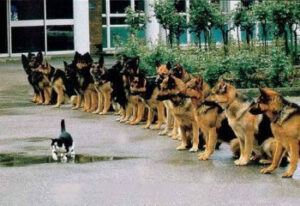Most recently, this myth has developed even further: instead of training events, brief infotainment sessions are offered to busy managers, providing opportunities for “inspiration”. Managers at international or large local companies went through traditional leadership trainings a long time ago (not that they would typically do what they should be doing as people managers), so HR needed to come up with something interesting from the new fads of leadership. How successful have these efforts been? Well, you can figure that out from the disenchanting results of workplace engagement surveys.
Learning, especially about behaviour, does not take place in training events but in everyday work situations. Adults learn from experience: they try out whatever they consider reasonable, they gain some experience, and keep on doing what works for them. No matter how great the inspiration or “aha” experience is, if it is not followed by lots of exploration, practice and reflection, it is unlikely to result in behavioural change.
It is quite scary that the above knowledge about adult learning and the importance of practice have been largely ignored by leadership development and HR professionals responsible for designing such programs. Interpersonal communication, delivering results, improving performance or developing people are not simple and mechanistic tasks, with several variables and situational factors. Even relatively simple and predictable activities, such as bouncing balls or sounding some tunes on a musical instrument require lots of practice, for a long period of time. Why would it be different, if we want to develop our listening skills, set better quality goals or provide supportive feedback instead of demotivating nagging? If we have practiced these for 50 or 100 times in a given year, then we can say that it has started to become part of our skillset. Do we really think that going through a couple of role-play exercises will result in real skills development? Are we serious, when we hope that an inspirational talk will be sufficient for an exhausted, half burned-out manager to change her belief system and long established time management habits?
If we really want to help managers in their development and are willing to invest money in the process, first of all, we should only concentrate on those who have the motivation to learn. Learning tools and training events can provide the initial step, but they are far from enough. Participants have to be supported in turning that knowledge into action, trying out what they have learned, and reflecting on the experience. Skills development will only be the result of long-term, regular practice.
I know that unfortunately it is much easier for HR people or corporate leaders to buy trainings and believe in miracles, and for the providers to sell what is asked from them, deliver and send an invoice.
Act2Manage Application
An interactive, gamification-based, practice-oriented leadership development application that provides immediate help and enables follow-up to the most common dilemmas.







